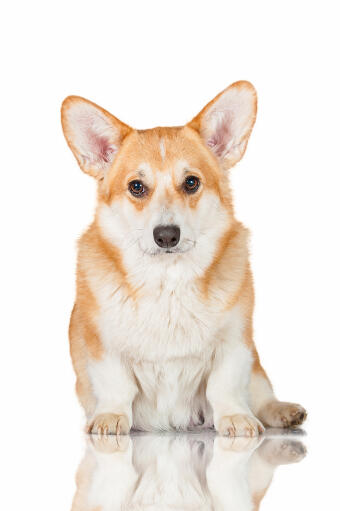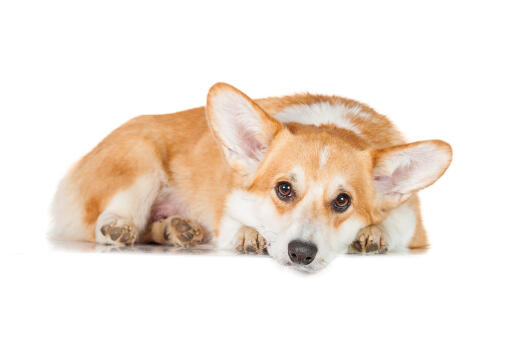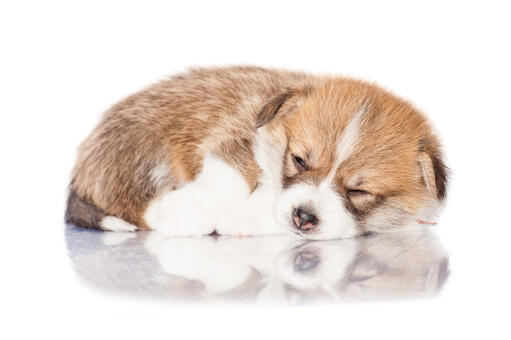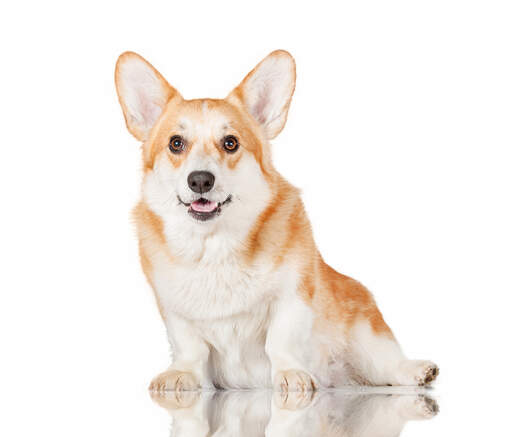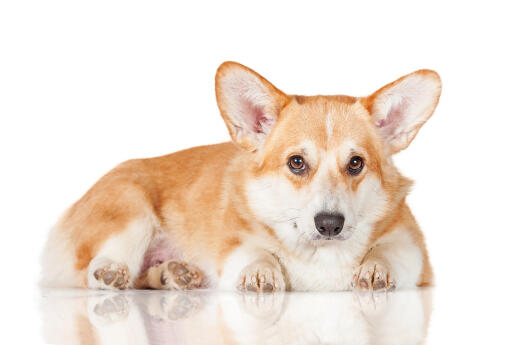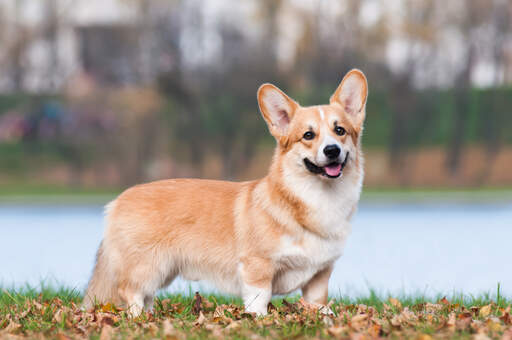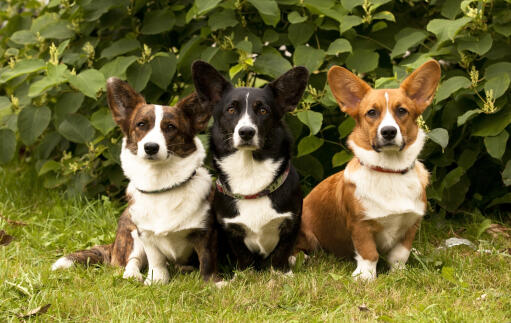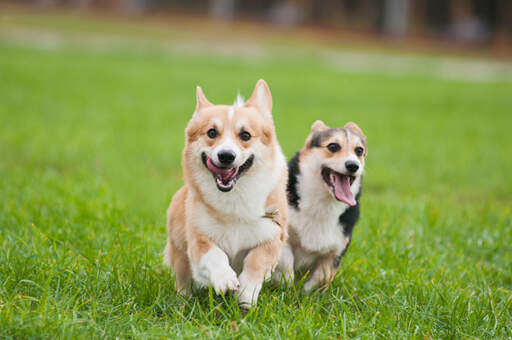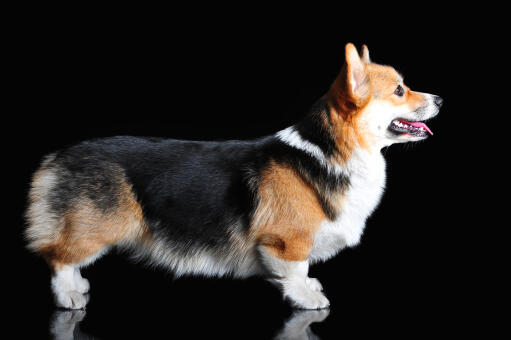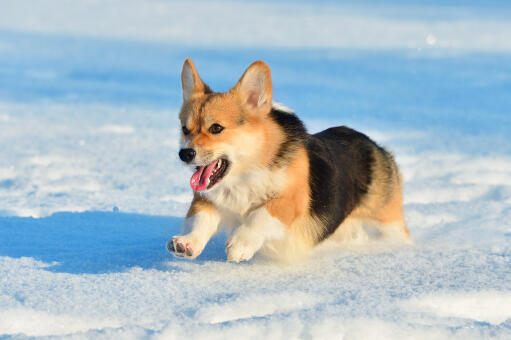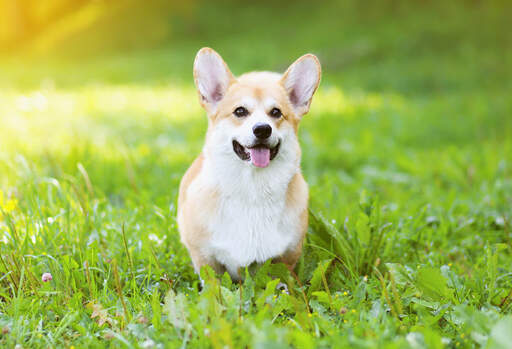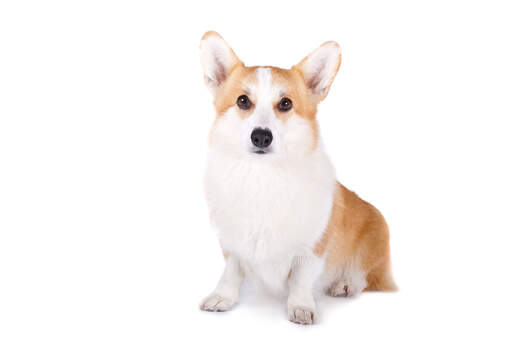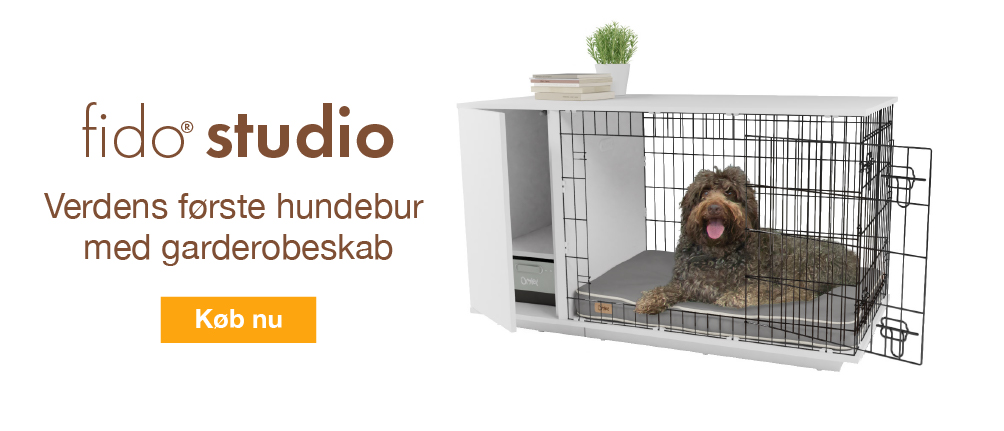Pembroke walisisk Corgi-hund












History
The Pembroke Welsh Corgi originates from Pembrokeshire in Wales, believed to have come from Vallhunds (Swedish Cattle dogs) introduced by the Vikings in the 9th and 10th century. They were used to drive cattle and sheep, nipping at the feet of livestock to get them to move, but able to avoid the kicks. Corgis were first shown in the 1920's where the Pembroke and Cardigans were shown as one breed. By 1934, the breeds were classed as two separate breeds. Queen Elizabeth II is a firm fan of the breed, having received her 1st dog in 1933 and has kept them ever since.
Behaviour
Corgis are intelligent, quick witted dogs who love to be around people. They make good pets, but can have a tendency to try and 'herd' small children. They make excellent watch dogs and will and do bark at the slightest noise. Barking can become a problem as they like the sound of their own voices. Teaching the 'quiet' command is vital. They can be reserved with strangers at first, but early socialisation will help with this. They are loving and playful with their family and dislike being left alone for long periods. Some can be possessive of their family so this needs to be watched. With this small package comes intelligence. They have a need to learn and will want to keep busy at all times. They were bred to work and like to keep their minds active. Training is relatively straight forward, but they can be stubborn at times. They like to play and are greedy dogs, so fun and reward based training works well. Activities such as agility are well suited to Corgis, which helps them expel energy and keeps them happy. Once they have had enough exercise, they will happily jump on to the sofa with you for a well deserved nap. They need lots of exercise and are curious when out walking. Their recall is usually good, so if trained, walking without a lead is possible. They are a good natured dog and are often used as therapy dogs. They tune in and are sensitive to their owners feelings and are always around to cuddle up to you when they feel you need it. They are however independent minded and not subservient to you, but will usually do as asked. They like to please and are devoted to their family.
Brushing a couple of times a week is usually enough to get rid of dead hairs and keep the coat looking tidy. Corgis are prone to obesity as they will eat anything and everything. Feeding should be closely monitored to prevent an over weight dog. Intervertebral Disc Disease and Canine Hip Dysplasia are also sometimes seen in the breed.
Temperament
Pembroke Welsh Corgis have interested plucky temperaments. They love to run and play with surprising athleticism for a dog with such short legs. Give them plenty of companionship and you will have one very happy dog. They are friendly with other pets and happy to meet new people. When playing with children their herding heritage may take over with them trying to herd children through heel nipping which needs to be discouraged through consistent training.
Health Problems
Health problems that may affect Pembroke Welsh Corgis include intervertebral disc disease (pressure on spinal cord that can cause paralysis), canine hip dysplasia (CHD), cataracts, progressive retinal atrophy (PRA: degeneration of the retina which can lead to blindness), cataracts, epilepsy, blood clotting disease, allergies and heart disease.
Breed Details
- Status: Common
- Life Expectancy: 12 - 15 years
- Vægt: 10 - 14 kg
- Højde: 10 -12"
- Rare: Nej
- Coat: Lavt
- Grooming Requirements: More than once per week
- Town or Country: Either
- Minimum Home Size: Small House
- Minimum Garden Size: Small to Medium Garden
- Breed Type: Herding
- Størrelse: Lille
- Energy Level: Medium
- Exercise Required: Up to 1 hour

